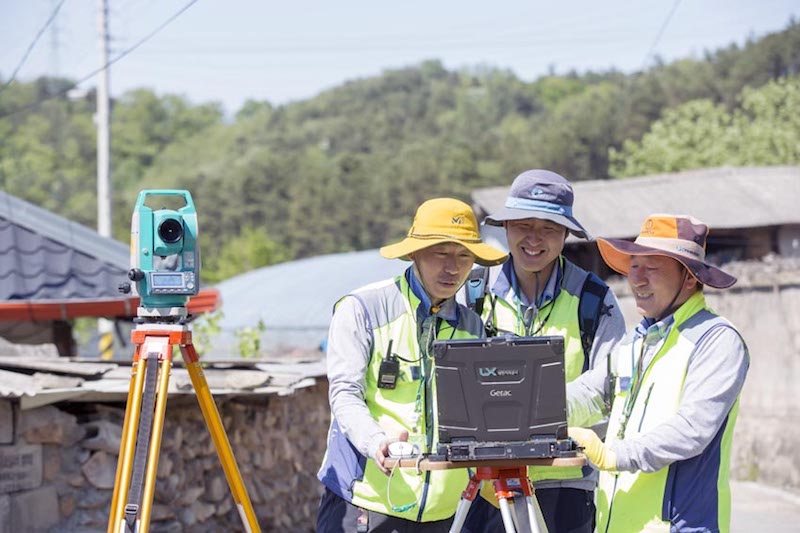
South
Korea’s National Geographic Information Institute (NGII) and the Korea
International Cooperation Agency (KOICA) have recently commenced a joint
training program for 20 high-ranking government officials from national
surveying and spatial intelligence agencies of 8 developing countries: Kyrgyzstan, Laos, Belarus, Mozambique,
Mongolia, Uzbekistan, Myanmar and Tanzania.
According
to a press release by the Ministry of Land, Infrastructure and Transport
(MOLIT), the training program, which runs
from 14th June to 3rd July, is intended to address key infrastructural
development issues in developing countries by sharing Korean technical
expertise.
The
joint training program constitutes part of KOICA’s international development
initiatives and taps on the NGII’s spatial technology expertise; consisting of
3 phases, the program begins with a “country report” where participants first
share about the status of spatial intelligence infrastructure in their home countries, following which
relevant aspects of Korean technical expertise will be matched according to the
challenges and needs faced by each country under the “Practice” phase; the
program concludes with the “Action Plan” phase, where participants will develop
solutions to tap on Korean technical expertise to solve domestic
infrastructural issues.
The
objectives of the joint training program are twofold: to address the need for
proper land management systems in developing countries for sustainable and
balanced national economic development, as well as create new opportunities and
expand markets for relevant Korean enterprises.
Rapid
urbanisation and a population boom in many developing countries often lead to
haphazard land management policies and systems that compound existing problems
such as soil degradation and poverty. By tapping on Korean technical expertise
in spatial technologies, it is hoped that participation in the joint training
program will inform more comprehensive and prudent land management policies and
systems in developing countries. In both Tanzania and Laos for example, poor
land-use policies and management systems have resulted in soil degradation due
to overgrazing and illegal logging.
While the NGII and KOICA
are responsible for conducting the program, private
enterprises specialising in spatial technology products and services will be
roped in to provide solutions and consultative services for participants of the
joint training program. Over the course of the joint training program, the NGII
will provide avenues for “close consultation and (solutions advisory) on
spatial information issues” present in the 8 developing countries. This will be
done via cooperative programs between domestic Korean spatial information
companies and participating developing countries.
According to MOLIT, it is hoped that via such
efforts, participating developing countries will be able to develop a more
feasible action plan for improving land management systems; it is also hoped
that, via cross-border technical cooperation and public-private partnership,
the program will boost the prospects for foreign entry and commercialisation of
products of domestic Korean companies specialising in spatial information
systems.
“We
will actively transfer our experiences and skills in the area of surveying
and spatial information, and further strengthen cooperation with relevant
government officials in developing countries,” said Yu Ki-Yun, Director of the National
Geographic Information Institute.
“(The
joint training program provides opportunities) which will help Korean companies
to advance into overseas markets.”
As an exemplary model of development and
policymaking excellence, South Korea possesses a consistent record of technical
cooperation programs and initiatives to promote domestic technical expertise
overseas. Earlier
in May, South Korea’s Green Technology Center (GTC – K) had inked a business
agreement with Kazakhstan’s International Center for Green Technology and
Investment (IGTIC), strengthening bilateral cooperation on climate
technology projects; the
Seoul Metropolitan Government had also signed a Memorandum of Understanding
with the United Nations Development Programme (UNDP) in Asia and the Pacific
last month to encourage the adoption and implementation of Seoul’s
innovation policies in developing Asian cities.
















